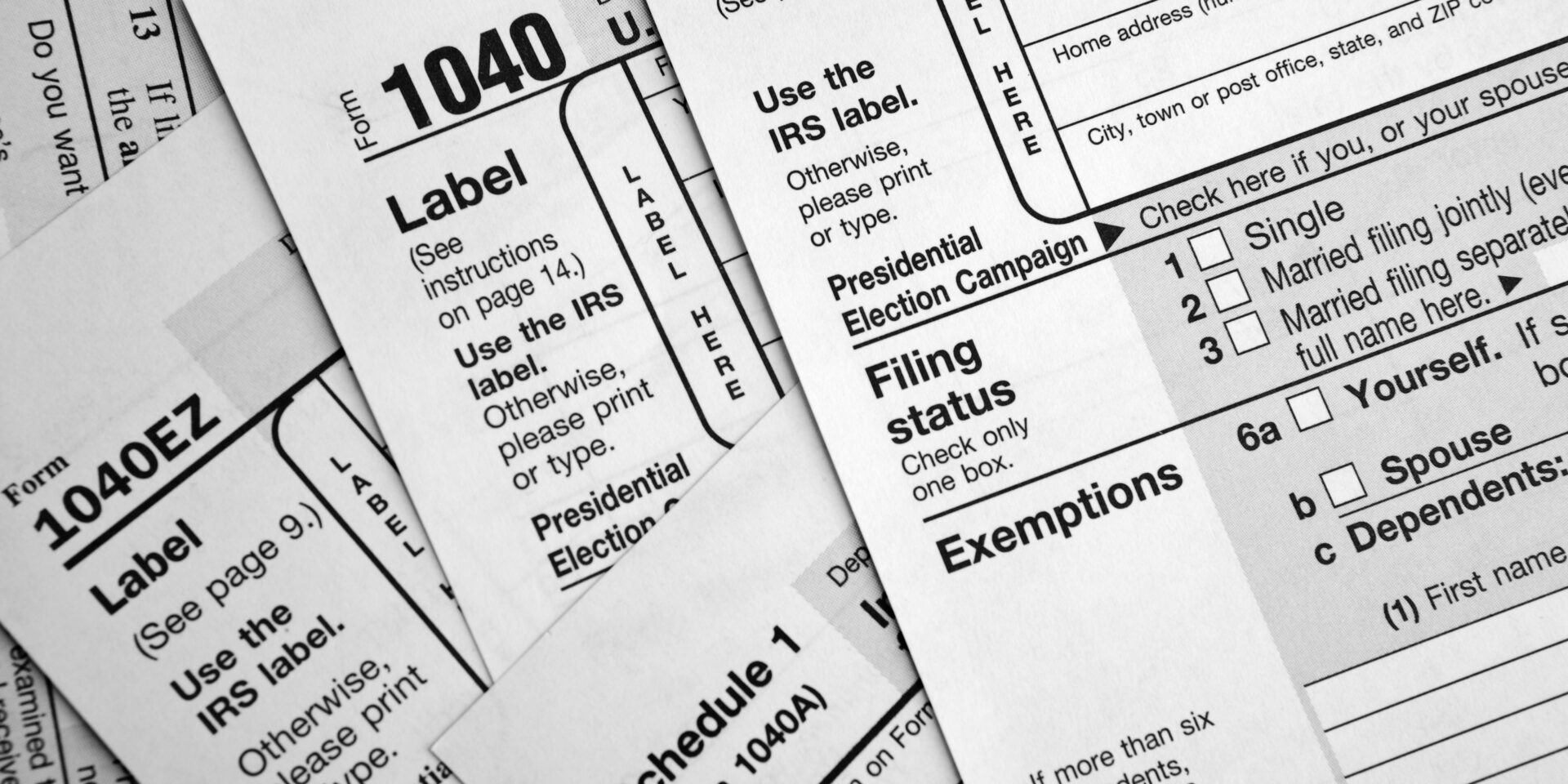Language:
How to Start a Car Rental Business

If you love cars and have an entrepreneurial spirit, starting a car rental business could be a great career. Nevertheless, there can be many challenges you have to overcome to ensure a successful business, such as legal compliance, marketing, and stiff competition.
Fortunately, with the right approach, a car rental business can prove to be a thriving and profitable venture — providing valuable service to eager customers. Read on to learn the fundamental steps for how to start a car rental business.
Is a Car Rental Business for You?
Before we go into full detail on starting a car rental business, let’s determine if this enterprise is meant for you.
If you have a passion for cars and experience in the industry, starting a car rental business can be an attractive opportunity. But it’s important to consider the pros and cons. On the plus side, car rental businesses can be profitable and flexible and offer growth opportunities.
However, challenges such as high operating costs, intense competition, and regulatory requirements are significant considerations. Therefore, you should carefully evaluate your interests, skills, and resources before deciding to launch a car rental business.
The Different Types of Car Rental Business
The car rental sector is a diverse industry that serves a wide range of customers with different needs. There are several types of car rental companies, each with unique characteristics and target markets.
Understanding the advantages and disadvantages of each rental company will help you determine which type is the best fit for you. In the following sections, we’ll take a closer look at the different types of car rental companies and the characteristics that set them apart.
Independent Small Business
Independent small car rental businesses are often family-owned and operated, with a fleet of vehicles that typically consists of the economy and mid-size cars. One of the key advantages of an independent car rental business is the ability to offer personalized and flexible services to customers.
Smaller operations are also typically more nimble and can adjust to changing market conditions quickly. However, independent car rental businesses may face challenges when competing against larger, more established brands — and may have less access to financing and marketing resources.
Existing business
Existing car rental companies are those that are already established and have a long history of serving customers. These companies may have national or international name recognition, a wider selection of vehicles, and established relationships with suppliers, which may give them some advantages.
However, established companies may also have higher operating costs and face greater competition from other car rental companies. Plus, the costs associated with purchasing an existing business can be significant, and integrating new systems or practices can be challenging.
Dealership
Car dealerships are another type of car rental company that usually rent cars as an extension of their core business of selling new and used cars. One of the advantages of this type of car rental is the ability to offer customers the latest models and options. Car dealerships can also offer financing and other services to their customers that traditional car rental companies cannot.
However, rental fleets are often smaller and prices can be higher than other rental options. Dealers may also face challenges during economic downturns or fluctuations in the auto industry.
Franchise
Franchise car rental businesses are those that are part of a larger chain or network of businesses that use a common brand and operational system. Companies such as Hertz, National Car Rental, and Avis are some of the top competitors today. One of the key advantages of a franchise business is the ability to benefit from established branding and marketing resources — as well as the experience and knowledge of the industry.
Additionally, franchise businesses may have access to financing and operational resources that independent businesses may not. However, franchise fees and royalties can be expensive, and franchisees may have limited control over certain aspects of the business.
14 Steps to Start a Car Rental Business
Regardless of the type of car rental business, there are some essential steps aspiring entrepreneurs should take. Below you will find a step-by-step guide explaining everything you need to know to help you start your journey.
1. Choose Your Type of Car Rental
Based on the different types of car rental businesses, you will need to decide which type matches best with your experience, passions, and capital. Consider the advantages and disadvantages of each type carefully before making a decision and do thorough research on each type of business. This will give clarity to your goals and act as the foundation on which you build your business.
2. Develop Your Business Plan
The business plan should include an overview of the business, including its goals, target market, and competitive marketing. This will act as a road map for your day-to-day actions and show you what you’ll need to run a successful business.
Here are the key points you should include in a business plan:
- A financial plan to cover startup costs, including vehicle purchases, insurance, and marketing expenses.
- A marketing strategy to attract and retain customers, including online and offline tactics.
- Management protocol on how to run daily operations, such as bookkeeping and maintenance processes.
This is a brief outline of what you should include in your business plan and is recommended that you do proper research on how to create a legitimate business plan to ensure future success.
3. Determine Your Target Audience
Once you have chosen which car rental business you wish to pursue and have drawn out your business plan, you need to determine your target audience to gain a loyal customer base. Your target audience should be based on factors such as age, gender, geographic location, income level, and lifestyle. Understanding the needs and preferences of your target audience can help you develop effective marketing strategies and ensure that your services are provided to the right people.
For example, if you are targeting a younger demographic, social media and influencer marketing might be more effective than traditional advertising methods. Or, if you offer a selection of a particular model, then your focus should be directed toward those interested in those types of cars. This way you know who you are targeting and will have consistent, recurring customers who trust and value your specialty.
4. Pick Your Location
When selecting a location, you should consider the size of the local population, the amount of traffic in the area, and the presence of other car rental businesses. A location with good visibility and accessibility can help attract more customers. In addition, a location near transportation hubs such as airports, train stations, and bus terminals can be particularly advantageous.
Careful consideration of location factors will help showcase that your car rental business is in a prime position to thrive.
5. Decide on Your Business Structure
Now, let’s determine which business structure best suits your needs. Deciding on the appropriate business structure is critical because the legal structure you choose can affect your personal liability, tax obligations, and ability to secure financing. In other words, the fate of your finances will be at the mercy of which business structure you choose.
In the following section, we will explore the advantages and disadvantages of each structure to help you make an informed decision about which type of business entity is right for your car rental business.
Sole Proprietorship
A sole proprietorship is a simple business structure where the owner is the business, and there is no legal separation between the owner and the business. This structure may be suitable for small car rental businesses with a single owner because it is easy to set up and requires little paperwork. The advantages of a sole proprietorship include complete control over the business and less legal paperwork.
However, the biggest disadvantage is that the owner is personally liable for all debts of the business, which can put personal assets at risk.
General Partnership
A general partnership is a legal entity in which two or more persons share ownership of a business. Each partner contributes to the business and shares in its profits and losses. This structure can be suitable for car rental businesses with multiple owners, as it allows for shared decision-making and resources. The advantages of a general partnership include shared responsibility and liability, which can reduce the personal risk for each partner.
However, disputes between partners and disagreements over business decisions can be a disadvantage, and partners can be held liable for each other’s actions.
Limited Partnership
A limited partnership is similar to a general partnership but has one or more general partners who manage the business and one or more limited partners who do not participate in the management. Limited partners have limited liability for the debts and obligations of the business, and their personal assets are not at risk. This structure may be appropriate for car rental businesses where some partners want to invest in the business but do not participate in the day-to-day operations.
The main disadvantage is that the general partners have unlimited personal liability for the debts and obligations of the business.
Limited Liability Company
A Limited Liability Company (LLC) is a popular business structure that offers the benefits of both partnerships and corporations. LLCs provide owners with limited liability protection, similar to a corporation while retaining the simplicity and flexibility of a partnership. This structure is suitable for car rental companies of all sizes, as it offers tax advantages and simple start-up procedures.
The main disadvantage of an LLC is that it can be more expensive to form and maintain than other structures and the ownership structure can be more complex.
C Corporation
C Corporations or C-corps, separate their owners and shareholders — providing personal asset protection and allowing the company to raise capital through stock offerings. This structure may be appropriate for larger car rental companies with many investors and shareholders. The advantages of a C-corp include limited personal liability, the ability to raise capital, and the ability to offer stock options and employee benefits.
However, C-corps are more complicated to form and maintain and are subject to double taxation, which can be a disadvantage.
S Corporation
An S Corporation or S-corp is a legal form that allows small businesses to avoid double taxation by electing to be taxed as a pass-through entity. This structure may be appropriate for smaller car rental companies with a limited number of shareholders. The advantages of an S-corp include limited personal liability, pass-through taxation, and the ability to offer stock options and employee benefits.
However, the rules and regulations for S-corps can be complex, and the company may be subject to restrictions on the number and type of shareholders.
6. Create Contract Agreements
The contract agreement should outline the details of the rental, including the rental rate, the terms of the rental, and any additional services or fees. The agreement should also specify the rights and responsibilities of both the business and the customer, including any damage waivers or insurance policies. A well-crafted contract agreement will help ensure that both parties are clear on the terms of the rental and can minimize disputes or misunderstandings.
7. Register and License Your Business
Registering and licensing your car rental business is a crucial step in ensuring compliance with local laws and regulations. This includes obtaining the necessary permits and licenses to operate a business in your jurisdiction. This step is necessary to protect your business from potential legal liability and to ensure that you are following the guidelines set forth by the local government.
Registration and licensing requirements can vary from place to place, and it’s important to be aware of and comply with all relevant laws and regulations. Failure to do so may result in fines, legal action, or even the closure of your business.
8. Manage Your Finances
If you are starting a car rental business, you need to have a handle on your finances. It’s important to have a solid financial plan that outlines your goals and projected expenses.
This plan should include details on startup costs, vehicle purchases, insurance, marketing expenses, and daily operating costs. It’s also important to establish a financial management system that includes bookkeeping and accounting. Good financial management will help you make informed decisions, track your progress, and keep your cash flow in check.
9. Open a Business Bank Account
A separate account allows you to keep your personal and business finances separate, which simplifies accounting and reduces the risk of financial errors or fraud. This is essential because having a separate account can make it easier to track expenses and monitor cash flow. In addition, opening a separate business bank account will legitimize your business and be considered a serious business entity in the eyes of the Internal Revenue Service (IRS).
When opening a business bank account, be sure to research various banks and compare fees and services to find the best fit for your business’s needs.
10. Source for Funding
Financing your business can be a big challenge when you don’t have the initial capital to launch your plans. Fortunately, entrepreneurs have a variety of funding sources available, including bank loans, private investors, and crowdfunding. Some entrepreneurs are also eligible for government grants or business loans depending on the business purpose of the car rental service.
11. Hire Your Staff
Your employees are responsible for dealing with customers, processing reservations, and maintaining the fleet of vehicles. So it is critical you hire the right team to ensure that your business runs smoothly and that the daily responsibilities can be entrusted to your employees.
Moreover, it’s important to identify the skills and experience when you hire, such as customer service, administrative and mechanical skills. You should also consider their work ethic, reliability, and communication skills.
A well-trained and competent staff can help you provide excellent customer service and bolster the growth of your business, while a poorly trained or unprofessional staff can damage your reputation and lead to lost business.
12. Avail of Insurance
Liability insurance is usually required by car rental companies because it covers damage caused by a customer’s rental vehicle. To avoid unnecessary fines and legal issues, it is recommended to purchase additional insurance such as collision or comprehensive liability insurance. These insurance policies can protect your business from financial loss in the event of an accident or damage to the vehicles.
13. Fleet Inventory: Buy or Lease Cars
When it comes to your fleet inventory, you will need to decide whether to buy or lease cars. Buying cars can be a good long-term investment but requires a significant initial investment. Leasing, on the other hand, can give you more flexibility and may require a lower upfront cost.
Before you make any purchases, consider factors such as your budget, the expected demand for your services, and the resale value of the vehicles when deciding whether to buy or lease. Additionally, as mentioned earlier, choosing the appropriate car model in accordance with your target audience is also worth noting before purchasing.
14. Market Your Services Online
In today’s digital age, having a strong online presence has become a necessity for the success of any business. Creating a website is always a good place to start for your online marketing strategy. You can showcase your brand with flying colors by adding value for your customers with blogs, special offers, and testimonials — building trust and loyalty.
Additionally, developing an online advertising campaign through Google AdWords or social media platforms such as Facebook and Instagram can help you reach a wider audience. Businesses that are serious about building an online presence will invest in a digital marketing agency to cut through the noise and have a competitive edge.
Car Rental Business 101: How to Start and Succeed
Starting a car rental business can be a lucrative venture, but it requires careful planning and execution. Entrepreneurs must research the market, find a niche and obtain the necessary licenses and permits. Creating a business plan, securing financing, and building a strong online presence are also important steps in launching a successful car rental business.
To ensure the financial success of your car rental business, get help with doola’s professional bookkeeping services to keep track of your finances and manage your cash flow.
FAQs
Is owning a car rental business profitable?
With proper planning, a well-managed fleet, and effective marketing strategies, a car rental business can be a profitable venture.
How much does it cost to start a car rental business?
Depending on the scope and size of your business, entrepreneurs can expect to spend tens of thousands of dollars to cover expenses such as vehicle purchases, insurance, licenses, permits, and marketing.
How to start a car rental business with no money?
If you are starting a car rental business with no money, it is recommended to
explore options such as crowdfunding, business loans, and partnerships to secure funding and minimize initial costs.
How to start a luxury car rental business?
To start a luxury car rental business, entrepreneurs should research the market demand for high-end vehicles, identify a target audience and secure financing to purchase or lease luxury cars.
Additionally, it’s important to establish an online presence and market services effectively to build a strong reputation in the luxury car rental industry.
How to start an exotic car rental business?
You can start an exotic car rental business by conducting market research, identifying a niche, securing financing, obtaining necessary licenses and permits, establishing an online presence, implementing effective marketing strategies, and ensuring adequate insurance coverage.
Keep reading
Start your dream business and keep it 100% compliant
Turn your dream idea into your dream business.















